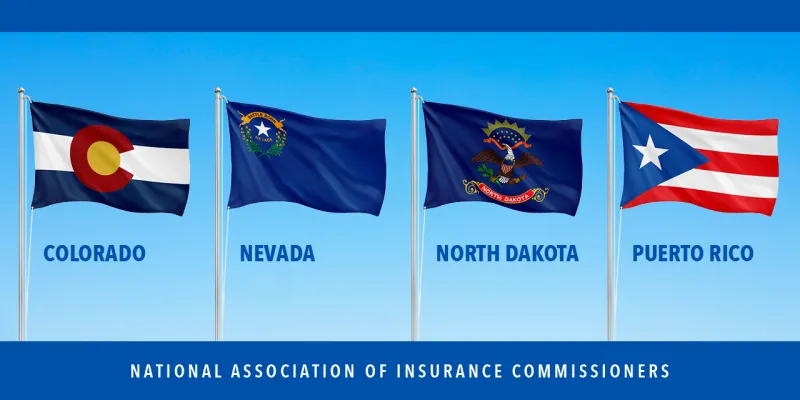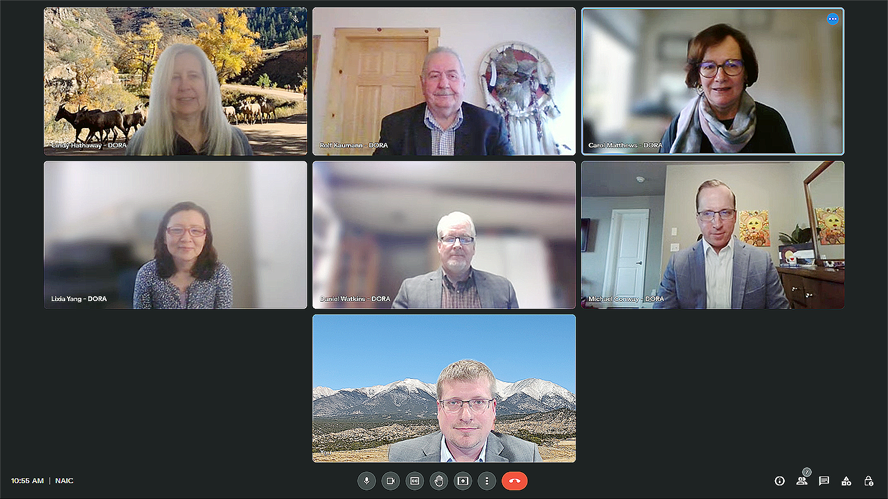
Colorado, Nevada, North Dakota, and Puerto Rico Receive NAIC Accreditation
The NAIC Financial Regulation Standards and Accreditation (F) Committee voted to accredit the Colorado, Nevada, North Dakota, and Puerto Rico departments of insurance (DOIs) at the NAIC’s 2022 Fall National Meeting.
The NAIC Accreditation Program demonstrates that state insurance departments meet standards of solvency regulation and provide effective regulation of multi-state insurers. NAIC accreditation allows non-domestic states to rely on the accredited domestic regulator to fulfill a baseline level of effective financial regulatory oversight.
To become accredited, the DOI must submit to a full on-site accreditation review by a team of independent consultants, who evaluate the department’s capabilities in the following areas:
- Financial solvency laws and regulations
- Financial analysis and examination capabilities
- Organizational and personnel practices
- Primary licensing, redomestications, and change of control of domestic insurers
For a DOI to remain accredited, an accreditation review must be performed at least once every five years, with interim annual reviews. If necessary, key areas for improvement may be provided to the DOI, and interim follow-up may be required on those areas.
Learn more about the NAIC’s Financial Regulation Standards and Accreditation program.
DOI team photos:


About the National Association of Insurance Commissioners
As part of our state-based system of insurance regulation in the United States, the National Association of Insurance Commissioners (NAIC) provides expertise, data, and analysis for insurance commissioners to effectively regulate the industry and protect consumers. The U.S. standard-setting organization is governed by the chief insurance regulators from the 50 states, the District of Columbia and five U.S. territories. Through the NAIC, state insurance regulators establish standards and best practices, conduct peer reviews, and coordinate regulatory oversight. NAIC staff supports these efforts and represents the collective views of state regulators domestically and internationally.


